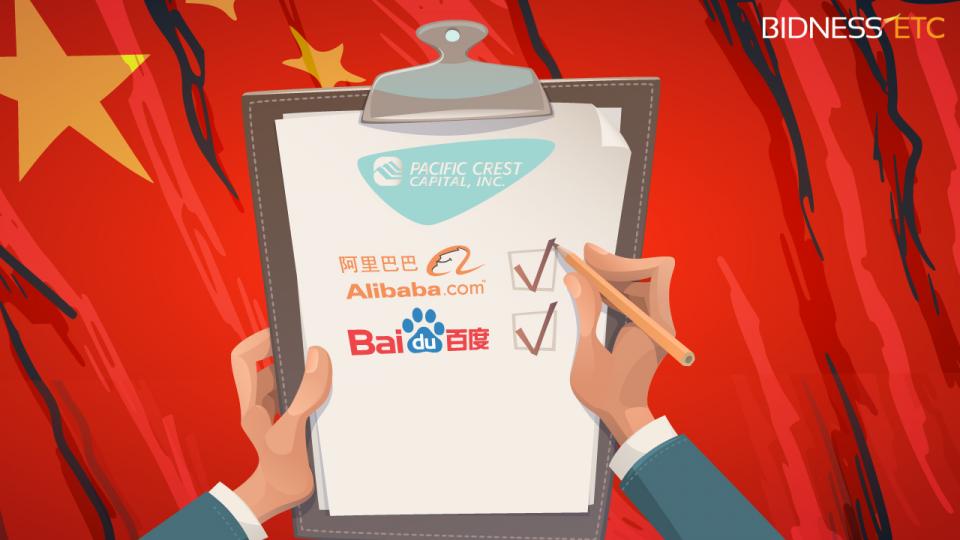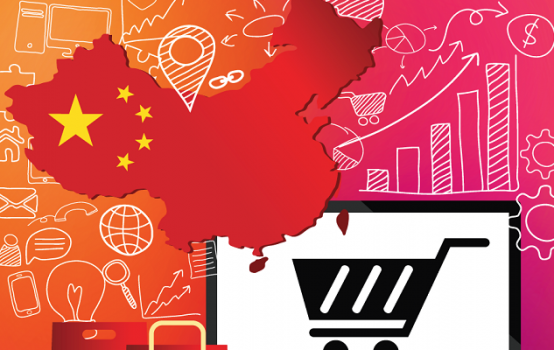Xiaohongshu was taken off the shelves for one month in the application store. Does it affect users and brands?
Xiaohongshu was taken off the shelves for one month in the application store. Does it affect users and brands?
Weibo social media crisis learning from Sesderma in China
With almost 400 million monthly active users by the end of 2017 on Weibo, without a doubt, every foreigner brand would consider Weibo as an important social media channel to build up awareness in China. We can imagine if one brand could appear on the top search topics, it may be because they have successfully created a big issue, but on the other hand, the popularity maybe also comes from unexpected negative feedbacks which a small issue could turn into a serious PR disaster in the blink.
We can always learn from other’s case and prepare tailored social media crisis management for our own brand in advance, and this time we learn from Sesderma’s experience.
Sesderma hit No.27 on the Weibo top search topics
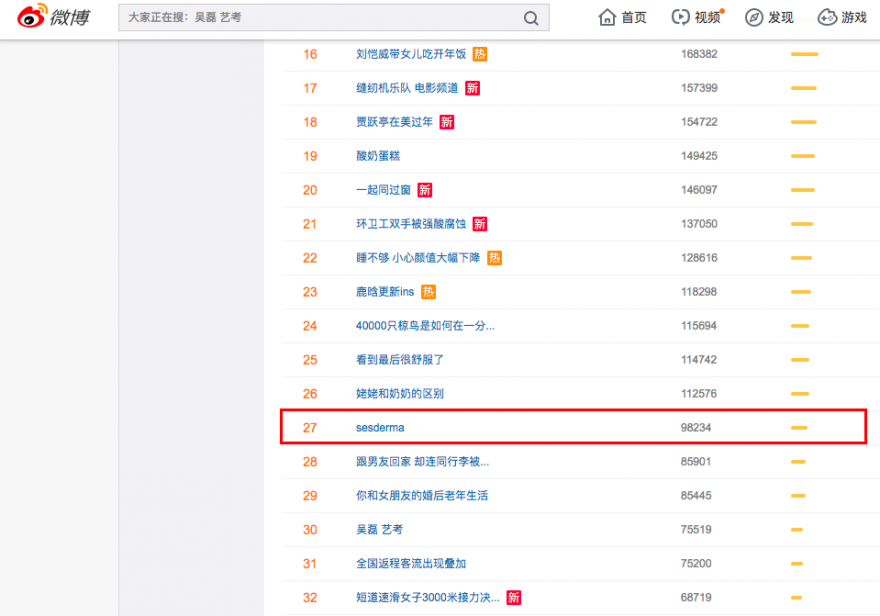
On the daily social media monitoring, we found that Sesderma, the well-known Spanish dermocosmetics brand was on the hot search list on Weibo, but they were dealing with the crisis out of a careless mistake in China. Their account has more than 7,000 fans, but the brand name search volume was 14 times more, we can assume the negative news brought in lots of people who aren’t familiar with the brand Sesderma before. What caused the PR crisis exactly? Let’s get back to where the issue started.

2/17 12 pm: Sesderma’s controversial post
Their intention was to educate the fans how to apply their product for a better result and created the post in a soft and self-deprecating way, but the critical part is they said “you” are poor and “you” don’t have money, so they misled the perspective and turned out to discriminate against the fans. Unfortunately, since then, the post started to accumulate passive comments in a quick-speed.
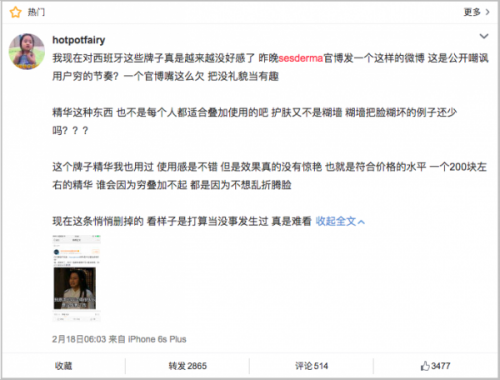
2/18 6 am: One user posted the negative feedback about Sesderma’s post (share:2,865 / comments:514 / likes:3,477)Not only the improper content, but the way Sesderma managed the issue. The user found Sesderma directly deleted the original post and without responding to fans’ anger. The post just went viral afterward, and it easily pushed Sesderma on the hot search list on Weibo.
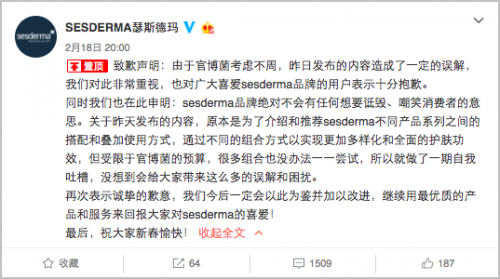
2/18 8 pm: Sesderma apologized sincerely to their fans
After waiting for more than one day, Sesderma had an official post to apology for their careless mistake. According to the comments, most of the fans could accept and left their support notes, but Sesderma continued to occupy the hot search topic position, until late afternoon on 2/20. Social media crisis comes easily, but it’s definitely hard to disappear.
3 takeaway to prepare crisis management on social media in China
1/Respond timely and as long as the mistake is confirmed, a sincere apology and open communication is needed
In many cases, actually, the crises are avoidable, if we can manage the potential crisis timely, and organize the crisis management team if necessary with members from involved departments, to create a open dialogue with fans within 24 horas.
2/Self-deprecating humor is easily taking over on social media, but extra care and attention for this kind of content is crucial
Sometimes self-deprecating humor is delicate, it’s better the content can be viewed and checked by different people to taste the respond. And keep the first person perspective clearly through whole content, as we can see in the Sesderma’s case, as long as you change the perspective, self-deprecating post could backfire quickly.
3/Chinese local team represents the foreign brand in China, so it’s important to work closely with headquarter to deliver the brand value
Even though many foreign brands have local subsidiary or agency to execute all the Chinese market marketing communications in China, but work integrally and have regular meeting is essential to keep both parts on the same track towards the ultimate success.
If you are interested in developing business in China through online marketing and e-commerce, 2 Open are glad to listen to you, please feel free to contact us by e-mail: INFO@2OPEN.BIZ, or just leave us a message below, we will get back to you as soon as possible.
Happy Double 11: Time to go shopping!
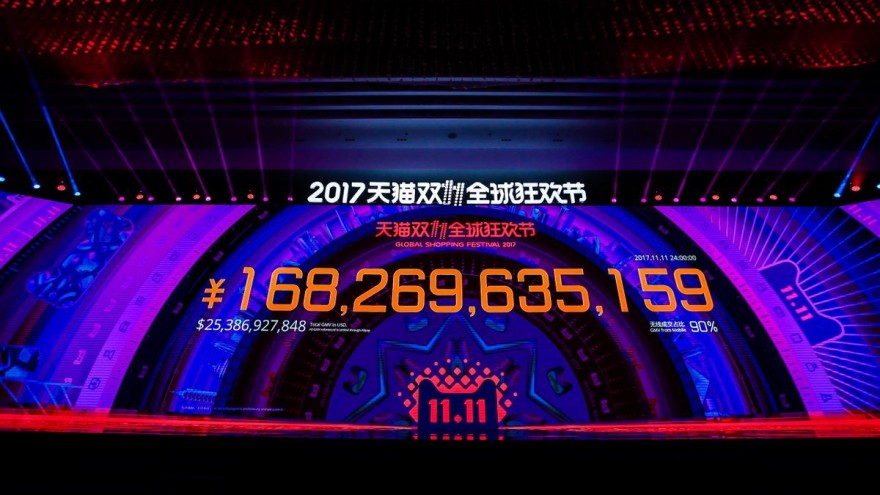
This year, Alibaba’s Singles Day Shopping Festival (also rebranded as double 11 Global Shopping Festival) entered into the ninth year. In 2009, retailer Alibaba turned the day into Chinese version of Black Friday. And eight years later, November 11, is becoming the biggest 24-hour online shopping festival on earth. Sales from Alibaba’s one day event has nearly doubled those from Black Friday and Cyber Monday in the US combined.
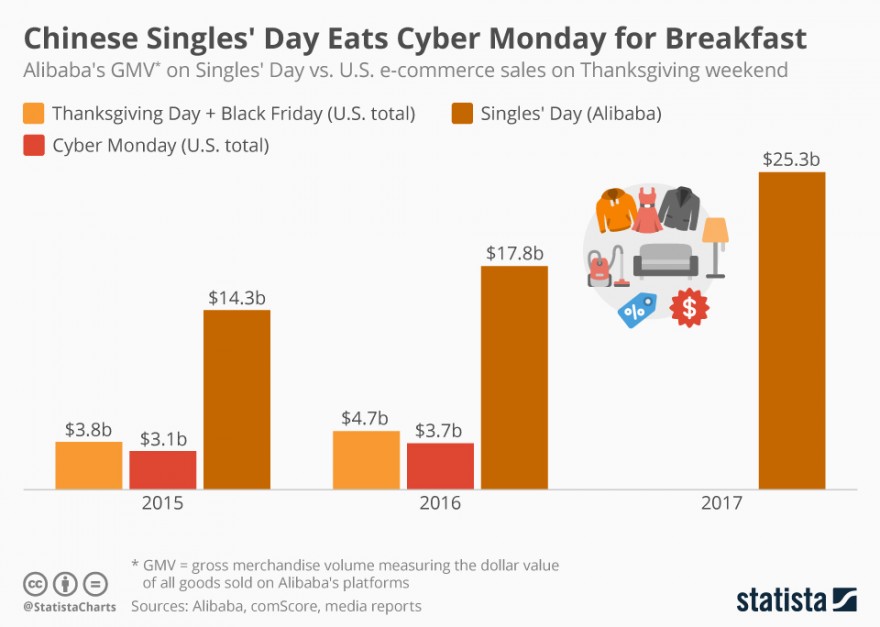
“Retail as entertainment” is one of the hallmarks of Singles Day. Alibaba is creating new sales record each year since 2009. In October last year, Jack Ma put forward the concept of “new retail”, which uses big data to seamlessly integrate online and offline activities. At zero hour on the day of November 11, consumers from China and other countries were all rushing in. Within 24 hours, they splurged on record-breaking $25 billion of purchases, a nice 40% increase from last year. As Alibaba’s CMO Dong Benhong said, not only we create consumer miracles, more importantly, the massive orders, the enormous amount of consumer data is captured. These real numbers provide data support for our next year’s business plan.
Here are some mind-blowing figures that sum up 2017’s Singles Day Global Shopping Festival:
$25.3 billion sales within 24 hours.
Alibaba smashing its own record from 2016 ($17.8B in year of 2016). The number reached as high as $5 billion in the first 15 minutes. In comparison, the total sales of Black Friday and Cyber Monday combined in the U.S. was only $6.79 billion in 2016. Behind this number, Focusing on providing a personalised experience and intelligent recommendations for consumers may have contributed to their success. Alibaba also said it had turned 100,000 physical shops around China into “smart stores” for this year’s global shopping event.
15 million products listed.
Over 60,000 global brands participated on this year’s “shopping party”. Familiar brand names such as Lululemon, Nike, Gap, Mac, and Macy’s. Products from US, Australia, Germany and South Korea were among most loved by Chinese consumers. In regards to what consumers actually bought on the day, baby milk powder, diapers, multivitamins, and other wellness related products were on the top of many people’s shopping list. As it is well known that health and safety are the top concerns of Chinese consumers.
90% mobile transactions
1.48 billion transactions were processed by Alipay, with 90% were done through mobile phone and tablets. Last year, mobile payments already accounted for 82% of Singles Day’s sales. In comparison, only about 30% of shoppers on Black Friday used mobile payments last year. China’s mobile payment system is more sophisticated and way ahead of many western countries. A great majority of Chinese consumers leapfrogged the era of desktop computers, moving straight to smartphones/tablets. It allows them to embrace Alipay’s convenience when making purchases through their devices.
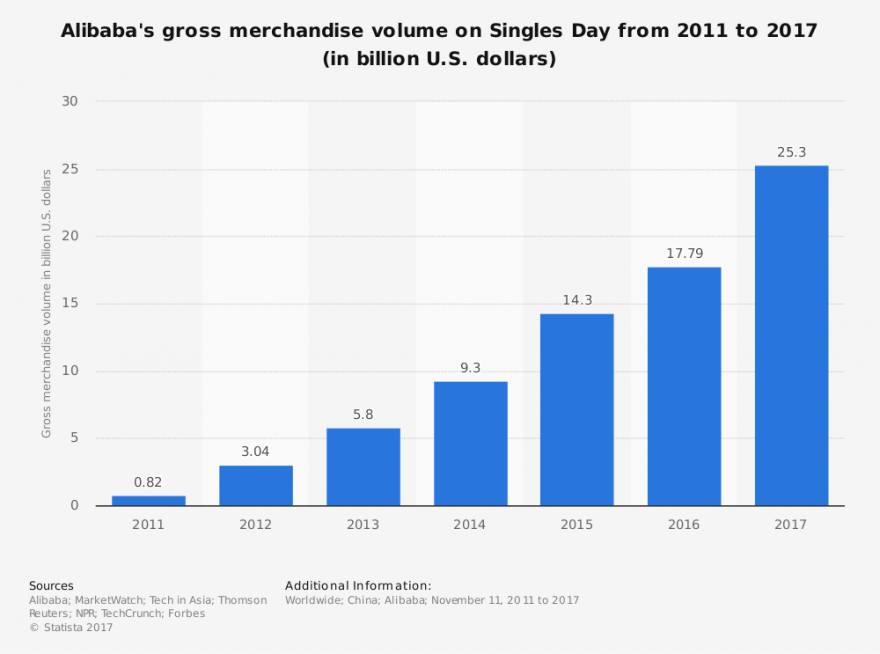
Summary
What truly sets the Single Day Shopping Festival is how Alibaba is leveraging its innovative technology combined with the scale of Alibaba’s entire ecosystem. It brings the future of retail in reality for Chinese consumers. With global trade closer than ever before, there has never been a better time to learn from the increasingly innovative retail landscape in China and to embrace the opportunities it presents.
The total retail market in China was nearly $5 trillion in 2016. By 2020, China will account for about 60% of global e-commerce. For consumer products companies, winning China means win the world!
Finally, here is a famous quote from Jack Ma, Alibaba’s founder. “Today‘s competition is brutal, tomorrow is even more brutal, but the day after tomorrow is beautiful. Most businesses die tomorrow night and can’t see the sunrise of the day after.”
Alibaba high-end membership APASS, what the luxury brand needs to know
September 9th was Alibaba’s APASS Day
Red carpet, hot girls and boys dressing up, while this is not a movie award ceremony, it is the first APASS off-line anniversary event held by Alibaba recently in Shanghai. They also invited Martha Lahti, SKII, Estee Lauder and many other international brands to join.
At this event, Alibaba Chief Marketing Officer Dong Benhong first revealed the level of APASS spending: “Based on the current membership size, these APASS members spend at least 30 billion RMB of their net purchases each year.”

Who is this group of people?
According to Ali group customer experience drive and Innovation Center General Manager Wang Hai, he said “APASS members are mainly trendy mothers, business elites, online shoppers and business generation”.
Here we have some examples. Zhang Yixin is a freshman in college. She spent 1 million last year on beauty products, jewelry and other luxury goods to simply just dress herself up.
Wang Ruoxi has 12 years of experience on Taobao. She would spend 800 thousand to buy luxurious watches and many other pricy goods including exorbitant Martha Lahti. Last year, she bought 16 brand-name handbags on Taobao. Right now, she makes her own skin care brand on Taobao’s line and transitions into a seller from a buyer.
In addition to our “super-chop type” buyers, Zhu Rongfei, one of the APASS members, is a “collection type” buyer. She bought more than 300 sets of Lego Limited Edition toys online as she is a maniac Lego fan.
What is APASS?
This lavish style of spending has made them gain the Alibaba Passport, also called APASS. It is an exclusive rewards program and a combination of Facebook, Amazon Prime and the American Express Black Card. Its 100,000 members get unusual perks in daily life such as abnormally good deals on trips, free return of products purchased online and considerate personal service. Meanwhile, they are also encouraged to join online communities of shopaholics who blog and talk up Alibaba.
 When Zhang Yixin mentioned the APASS membership service, she spoke with excitement: “What moved me most was that once, just right before an important show I had the next day, I lost my dresses that I was going to put on. The exclusive customer manager managed to find a seller in the city at night and got me the dress in time. It was amazing.”
When Zhang Yixin mentioned the APASS membership service, she spoke with excitement: “What moved me most was that once, just right before an important show I had the next day, I lost my dresses that I was going to put on. The exclusive customer manager managed to find a seller in the city at night and got me the dress in time. It was amazing.”
What luxury brands should know about APASS?
If luxury marketers doing business in China want to understand Chinese consumers better, they need to pay for professional market research agencies to do it. The APASS program offers a shortcut for brands to achieve this goal. It not only allows them to gain insight into their potential consumers, but it also shows them who they should target directly.
Even though it remains ambiguous whether APASS truly has what it claims to offer to luxury brands in China, brands such as Louis Vuitton, Ocean glasses, Antonio Banderas Guerlain, and Maserati are already among those who are beginning to test out what the APASS can reach.
If you need help to sell in China, contact us!
[recent_posts count=”3″ date=”true” thumbnail=”true” category=”1″]
Alibaba Overcomes Baidu in Chinese Digital Advertising
According to a new report from eMarketer, experts predict that the decline of Baidu in favor to Alibaba is due to the new market conditions in Chinese digital business. Alibaba has adapted fast to the last digital ads regulation and currently enjoys the leadership in terms of online advertising revenue.
The Chinese Internet landscape is characterized by the huge prominence of the three technology giants.

As you may know, Baidu is the largest player in China in digital advertising market, Alibaba is the Chinese eCommerce leader firm and alongside both, plays Tencent.
These Top 3 in digital industry are estimated to command a total of 60% in ad revenue in the present year, and amount around $42 billion.
What factors have led Baidu to its future decline?
Although currently Baidu still controls the largest share of the online advertising market, the success of the company in 2015 is far from repetition. Baidu’s share in China’s digital ad market is expected to drop to 21% in 2016, and forecasts are less positive for the coming year.
In early September, in the team we analyzed in our article “New Online Advertising Rules in China” the new online advertising regulation in China and its impact in all digital business with presence in China.
The Internet Ad Interim Measures is a new regulation prompted by the State Administration for Industry and Commerce of China. It arose from the Government’s claim by adopt new rules over online advertisement, at the time it was expected to impact on Chinese Digital Marketing as a whole.
As we mentioned before, some fields were subject to special regulation: healthcare, medicine, food and beverage. But new regulations also affect to Internet advertising practices with some other measures: it is required that all paid ads to be clearly marks in search results, prescription medication and tobacco ads have been forbidden and it is already mandatory to certain medical and health products.
From the beginning, these changes were identified by outside analysts as a serious handicap for the future of the company. As Shelleen Shum told,
“We think the impact will be larger on Baidu than on the other search engines given Baidu’s larger market share and its dominance in medical service ads.”

But the coming into force of the new rules, is not the only reason for its current decline. The lack of strong mobile devices is also affecting its ability to attract advertisers.
The main driver in the Chinese market is the mobile platform. As Lyu Ronghui said,
“Huge traffic is the bedrock of online advertising business. But unlike Alibaba and Tencent, which have numerous successful mobile products that can attract traffic from users. Baidu still lacks a new cutting-edge to help jumpstart its slowing traditional search business.”
Facing Baidu, Alibaba has surpassed its rivals taken advantage of the new conditions. As Shelleen Shum explains, its reinforcement is due to,
“Although also affected by the new regulations, Alibaba’s ad revenue, particularly from the mobile sector, shows no sign of abating thanks to the robust growth of its e-commerce retail business.”
Although at present Baidu controls 28% of the online ads marketing, Alibaba is expected to become the largest player in China’s digital advertising market before finishing 2016.
New rules in China
In China, digital landscape changes as faster than imaginable. There are plenty of creative ways to sell your services and products in China, but acting in the hand of a company based in the country, is always a big extra bonus for your business in China.
In search of a Digital Marketing & Ecommerce Agency?
Sources:
Can Specialist Retailers Survive against Alibaba and Amazon?
It is said that whoever hits first, hits twice. Some days ago, Zalando signed a partnership with its biggest competitors, Amazon and Alibaba. Far from thinking that they were wrong, we feel confident about the future of these new alliances between Europe, China and United States.
 Zalando was founded in Berlin (Germany) in 2008. Born as an European electronic commerce company, the brand already holds the leadership as the largest online fashion retailer, while also has become the second largest group in Ecommerce in European region.
Zalando was founded in Berlin (Germany) in 2008. Born as an European electronic commerce company, the brand already holds the leadership as the largest online fashion retailer, while also has become the second largest group in Ecommerce in European region.
Although originally its activity was focused in marketplaces, in 2010 Zalando starts its jump into developing and selling its own brands. Online selling shoes, clothes and fashion items constitute the core of the company, under a cross-platform perspective.
A step to break: boundaries to online shopping
Even if such perspective still remains today, observers enjoy its dramatic effects: to an unique Refund – Return policy in retail and a highly attractive shipping, have joined an effective logistic management and a recent prospection in offline context.

Although timidly, its development in the offline environment constitutes a new movement to establish its brand in the retail market and its visibility on some physical multibrand markets in Germany. To this point is joined an attractive shipping policy that enhances its appeal to the consumer: it is fast, secure and in case the users feel dissatisfied with their purchase, they have the chance to return them within 90 days.
Even if its payment and reimbursed model is constantly criticized for its high risk, it is also truth that this pillar has become an emblem for Zalando, its trademark and distinction over its competitors.
Zalando pushes online to grow
The company shows a steady growth in its presence in Europe, while designing its jump to the international area. The future seems promising according to their latest analysis prospects, with a year revenue growth close to 20%.
This rise is the result of three main reasons:
- Its total adaptation to mobile user experience: U-commerce is the new king in sales –check our articles “How to Take Advantage of the Latest E-commerce Revolution? U-commerce Trend” and “5 Things to Avoid When Doing Business in China” to discover a bit more!–
- Mobile purchases are already more than half of its sales
- A wide range of products and therefore, a great audience to address
- Its advantage of using a vast network of online platforms
A twist to Ecommerce
The desire of the Group is boosting its international sales and take advantage of the huge possibilities that the electronic market and their highly developed logistics presents to them.
To achieve its goals, Zalando has woven alliances with the giants of E-commerce: Amazon and Alibaba. Although its presence on Tmall is expected for the coming months, its bet for B2C trade -previously discussed by us in our article “Do Other Ecommerce Platforms Stand a Chance Against Tmall?”- some steps further on international distribution are already in discussion.
It is worth noticing that this giant enterprises are transforming traditional business into a new business model. Digital Marketing and Ecommerce helps to create new partnership systems for other companies around the World, and it will become more and more important in the following years.
In search of a Digital and Ecommerce Company? If you have any question or require any information about our services,
Sources:
Europe and China Partner to Provide Mobile Payment Solutions by Alipay
Not quite a month we woke up with the news that two technological giants had joined forces in creating an alliance with huge chance of success. The alliance between Ingenico Group and Alipay is focused on payments innovation as part of a wider international push, but is also a recent demonstration of the growing momentum of Chinese companies in Europe.
Over recent years, Chinese ambitions in Europe are clearly visible: just in 2016, Alipay has forged alliances with Uber app and Wirecard to offer mobile payments services around the World.
The alliance is based in European mobile payments
Ingenico Group is a french company specialized in designing a wide range of payment solutions, whatever the sales channel or payment method is chosen, according to three main needs that merchants and consumer ask: a secure, easy and seamless experience.
In recent years, China has created a vast and well integrated digital ecosystem in which highlights Alipay– a Chinese equivalent to PayPallaunch by Alibaba– which is already China’s leading third-party online payment solution with no transaction fees. The company already has more than 400,000,000 active Users.
 Although there are many reasons behind this alliance, the clear purpose was to tap into the huge Chinese tourist flow in Europe. As we wrote in our previous article “How to Acquire Chinese Tourists through Digital Marketing“, the Chinese tourism consumption is already estimated to be the highest in the World. Moreover, Chinese tourism market will keep growing even faster: in year 2019, estimations says that consumption will reach US 264 billion dollars.
Although there are many reasons behind this alliance, the clear purpose was to tap into the huge Chinese tourist flow in Europe. As we wrote in our previous article “How to Acquire Chinese Tourists through Digital Marketing“, the Chinese tourism consumption is already estimated to be the highest in the World. Moreover, Chinese tourism market will keep growing even faster: in year 2019, estimations says that consumption will reach US 264 billion dollars.
The motivation to exploit the partnership is shared: on the one hand, Europe has become the major vacation destination by a sector of the population with high standard of living; on the other hand, Alipay seeks to exploit the existence of more than 120 million Chinese tourists arriving in Europe every year and an approximately cost of $ 875 on average, while offering a payment experience nearest to their day to day.
Chinese tourists in Europe will be able to pay via Alipay App at any store that uses the Ingenico solution
The announcement not only underscores the growing relationship in business between two increasingly interconnected areas, but also the enormous benefits that such collaboration can mean to both. With such a perspective, it is not surprising the happy ending. As Philippe Lazare, Chief Executive Officer of Ingenico Group said,
“We are very excited to partner with Alipay and contribute our unique omni-channel expertise, products and services to help them optimize the user experience and boost sales all over the world. Their choice for Ingenico is a tribute to our high success rate and ability to meet even the most demanding customers’ requirements.”
 Chinese tourists are accustomed to using electronic payment methods, an innovation that fails to catch on among European citizens. Presumably, this cultural difference has become a barrier that discourages expenditure among Chinese tourists. As Jacques Behr, Ingenico’s executive vice-president for Europe and Africa said,
Chinese tourists are accustomed to using electronic payment methods, an innovation that fails to catch on among European citizens. Presumably, this cultural difference has become a barrier that discourages expenditure among Chinese tourists. As Jacques Behr, Ingenico’s executive vice-president for Europe and Africa said,
“Payment becomes a friction for business so we are removing this friction by allowing the retailers to capture sales to the Chinese tourist population.”
The measure therefore seeks to stimulate Chinese people expenditure in their major holiday destination, but also tries to take advantage of the huge market Alipay already has in China: more than 450 million users liable to become target audience, and a market share in mobile payments in China higher than 80%. As they themselves spelled out,
“We are building international business step by step. There is much still to do with our customer base, and is still expanding.”
Such collaboration not only benefits the Chinese people, but also means a qualitative leap in technological enjoyment for Europeans. The alliance seeks to provide to European online retailers and to customers the possibility to pay and accept payments through Alipay´s eWallet through some marketplaces. An excellent way to boost e-commerce and sales in China and Europe.
Although the operation has already begun, both companies estimate that Alipay won’t be fully operational in Europe yet.
Just to start
While Alipay makes its movements, the rest of the world watches. Only companies that have a deep understanding of Chinese market can cope with the changes that are to come.
In search of accurate and personalized information to your sector and business?
Visit our Digital Marketing and eCommerce Agency!
Sources:
5 Bugs To Avoid When Doing E-Commerce In China
Have you ever tried to build a new overseas brand and fail in your attempt? In any approach to China, foreign brands often make some common mistakes when trying to sell their products in China mainland. Although such misconceptions are not exclusive to online environment, we will focus on those that particularly affect your approach to e-commerce in China. China is already the world’s first e-commerce market.
Are you going to miss its enormous potential?
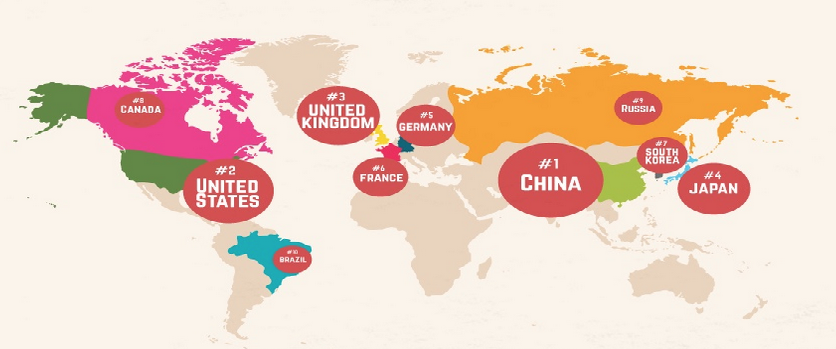
First bug: China is mobile, and you better record it
It is not the first time we tell you this, and for sure it won´t be the last. As we mention before in our article “How to Take Advantage of the Latest Ecommerce Revolution?”, Ecommerce has been a great revolution for both companies and customers.
Nowadays, Chinese prefer to use their mobile devices rather than their laptops and according to the new trend, companies have already starting to adapt themselves to portable devices. Moreover, those companies using U-commerce are focused on improving the customer experience through customizing and navigation created in cooperation with the User.
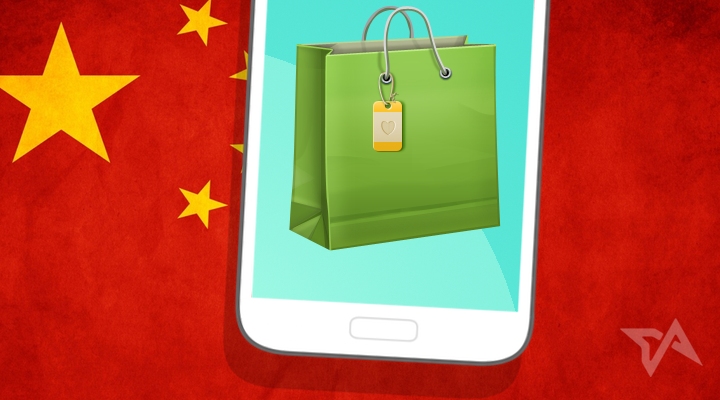
Second bug: E-commerce may be an asset in your country, but in China is irreplaceable
We cannot fail to mention Frank Lavin, CEO of Export Now, when he says,
“In China, Ecommerce is the cake.”
This may mean that you will need to adapt your business to the new environment. Do not expect it to be China who suits you, this does not work this way.
Remember that whoever hits first, hits twice. Embrace e-commerce as the enabler of your business it is, and take advantage of the immense benefits that electronic commerce can bring to your company to start selling around the World!
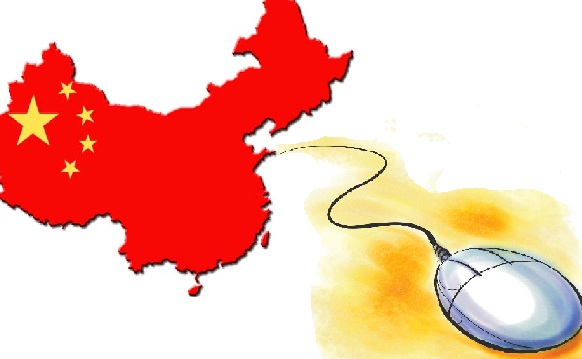
Third bug: Social Media is there to stay. Register your account and start moving!
Surely you’ve never heard the words Baidu, WeChat and Weibo… and let us tell you that you have a huge problem in China.
Not only around the 93% of the online searches in China are done in their own search engines –Have you ever heard Google does not work in China?– but also about a 68% of the customers take a look on the official Social Media account before buying.
Do not miss the opportunity to have a voice in that huge chicken coop is the network, start developing a tailored communication strategy for your brand and gain your piece of the cake!

Fourth bug: Domestic and lazy thinkers, or how the triumph from a day doesn’t make it daily
Do you think you will keep doing in China pretty much the same things you were doing before and as a result you will achieve success?
A basic rule you should never forget again is, no matter the experience and the many different markets in which you have entered before, is that new horizons always implies a new starting on your understanding of the target, so we definitely encourage you to start a market analysis.
Will your brand be competitive in China?
Do you offer something different regarding your competitors?
Is there a suitable market niche in the country ?
These and a thousand more questions require a prior discussion, keeping in mind that China should not be underestimated: the country enjoys some peculiarities you definitely must know before starting your landing.
We strongly recommend you seek assistance from professionals focused on the Chinese market, in order to enhance your chances of success in the country.

Fifth buf: Do not try to do everything by yourself, ask for advice
We are not tired of saying it, and will do so again: China is not a flat road. Do not try to embark on this mission unaccompanied, but pick very well with whom.
Look for complementary partners interested in joining forces, go to Government agencies dedicated to external actions and internationalization and definitely search for specialized agencies in the country to start outsourcing some tasks.

Already in search of a consulting expert in digital marketing and e-commerce? You have come to the right place.

China And The Ripple Effect On The Global Stage
What are the risks that could arise from the economic slowdown in China? How does China affect to other countries? Since starting its market reforms almost thirty years ago, China´s currently economy cannot be ignored.
Even if China has not left behind its centrally-planned economy yet, it has introduced some big measures to turn into a market-based country. Such efforts have resulted in a huge GDP growth and has lead the country to reach all the Millennium Development Goals by 2015.
Currently China has become the second largest economy in the world, but deals the first in the ranking by the quantity of goods and services produced. Moreover, according to the expectations published by the International Monetary Fund (IMF) for the present year, China will be responsible of the 18% of the entire World economic activity.
If to all this we add the expectations of its huge and richer population, its rapid change on production models and its consequent role on the World stage, we can conclude that the importance of China in the world has become a matter of vital importance in today’s global interregional balance.
But its big hits cannot make us forget that China still remains a developing country, and as we have mentioned before on our article “Ten Challenges on Chinese Future“, not only market reforms are incomplete, but also it has huge challenges ahead which must start to face.
After the financial crisis of 2008, neither the business community nor Governments have fully restored their confidence on the global economy. The doubts about the economic bonanza and the future role of Western countries have underestimated the increasing influence capacity of China in the international arena, while doubts have generated certain fear of a possible blowout of the country.

Trade effects are a game changer
The channels through which China affects the global economy can be summarized on:
- Decrease in trade and exchange rates
The Chinese leadership on trade makes hard not to affect global demand. China’s import volumes keep growing, but less than expected. This becomes a huge problem to those countries dependent on Chinese exports: raw materials are highly susceptible of the slowdown.

This effect creates a bidirectional paradox: China affects the world as much as the world affects China.
Although there has been much speculation about a possible future depreciation of the RMB in order to relaunch Chinese exports, in the team we believe that a currency war is currently off the table.
- Oil lower prices and commodities
The latest drops in oil prices are caused by the lack of confidence on Chinese economy. Its weakness has led to enormous imbalances on exporting countries of crude oil and raw materials: Russia, Brazil, OPEC countries and the U.S. still suffer for it. China’s falling demand has greatly contributed to the new situation and with it, deflation has knocked on the door.

However, according to the latest analysis made by the IMF, the negative effects are supplemented by growth in the purchasing power of the population. The Organization still thinks that lower prices on commodities have a positive effect on general economy.
- Monetary and inflation policies
The recent affordability of RMB should not make us forget that Chinese weakness can lead to a global new paradigm surrounded by deflation and debt. Once again, lower prices stimulate consumption, and this leads to boost demand, bigger sales and prosperity. Lower prices have become the stimulus of global economy.

- Cultural hegemony
Even if the Western countries have underestimated China’s rise, the consequences can already be seen. Although Cultural power follows to Economy and Politics, China already shows its increasing political and cultural power on international arena: mandarin language and Chinese diplomacy have become a key to Government policy.

Its empowerment is more visible in East Asia, but runs fast around the rest of the world. We have started living in a China-centrism, in which global power gravitates around Chinese policy.
Nowadays, confidence in the global economy is vital for prosperity but unpredictable. The ripple effect that is lived in the global area, is greater than ever.
Understand this huge spider web which is China, seize opportunities to launch your business and boost your sales, are our goals.
In search of a Digital Marketing Consultancy? Interested on Chinese Ecommerce?
Visit us on 2 Open. We would love to hear from you!






